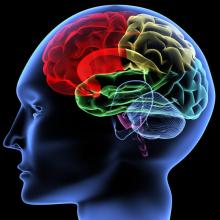
How Awareness of Emotions Improves Mental Health and Self-Knowledge?
In life, we all experience moments when emotions feel overwhelming — whether in stressful work situations, relationship conflicts, parenting challenges or personal struggles. Understanding the connection between our emotions, thinking, and body responses is essential for mental wellbeing, self-knowledge and emotional regulation.
Emotional intelligence is not just a buzzword — it is a vital skill for anyone seeking better mental health, effective stress management and improved interpersonal relationships. By learning how emotions and thinking interact, we can respond more thoughtfully rather than react impulsively.
The Emotional Brain and How It Works
Dr. Daniel Siegel’s Hand Model of the Brain provides a simple yet powerful way to understand our emotional responses:
- The emotional brain (amygdala) reacts quickly to perceived threats or stress, often triggering fight, flight or freeze reactions.
- The thinking brain (prefrontal cortex) helps us pause, reflect, and make conscious decisions, even when emotions are intense.
- By becoming aware of these two systems, we can regain control, think clearly and act intentionally, rather than being dominated by our emotions.
This model is particularly helpful in psychotherapy and counseling, as it teaches clients how to regulate strong emotions, manage anxiety and navigate conflicts in a balanced way.
Why Emotional Awareness Matters
When we learn to pause and observe our emotions, we:
- Reduce stress, overwhelm, and impulsive reactions
- Improve decision-making and problem-solving skills
- Enhance self-knowledge and self-reflection
- Strengthen empathy and relationship skills
Parents can also use this understanding to better interpret and respond to their children’s emotions, fostering healthier communication and emotional development in the family.
Integrating Emotional Awareness in Counseling and Psychotherapy
At my practice in Budapest and online, I work with clients to:
- Identify emotional triggers and patterns
- Understand how thoughts and emotions interact
- Learn strategies to pause, reflect and act constructively
- Improve emotional regulation in personal and professional life
This approach is particularly beneficial for expats, international students and digital nomads facing stress, culture shock, and relationship challenges. Integrating emotional awareness into daily life strengthens mental health, resilience and self-confidence.
Recommended Tools and Resources
For a practical introduction, you can watch Dr. Daniel Siegel presenting the Hand Model of the Brain, a simple yet effective visual tool for understanding how emotions and thinking interact.
By practicing these concepts, clients learn to center themselves in emotionally challenging situations, leading to greater clarity, calm, and wellbeing.
Book a Session
If you’re ready to take a step toward change, growth and better mental wellbeing, I invite you to get in touch.
📍 Location: Budapest XI. district, Fadrusz u.27., Hungary
💻 Online sessions available
📩 Email: info.pszichologia gmail.com (info[dot]pszichologia[at]gmail[dot]com)
gmail.com (info[dot]pszichologia[at]gmail[dot]com)
Let’s work together to make your experience in Hungary more balanced, meaningful, and fulfilling.
Author: Gabriella Brédáné Kis, Clinical Psychologist & Psychotherapist
I’m an English-speaking psychologist based in Budapest, offering in-person and online therapy for individuals seeking support with self-awareness, trauma and grief recovery, performance anxiety and relationship difficulties.
I help clients — including expats, international students, and professionals — gain deeper insight, emotional balance, and a stronger sense of connection in their personal and professional lives.
👉 Learn more about me and my work.